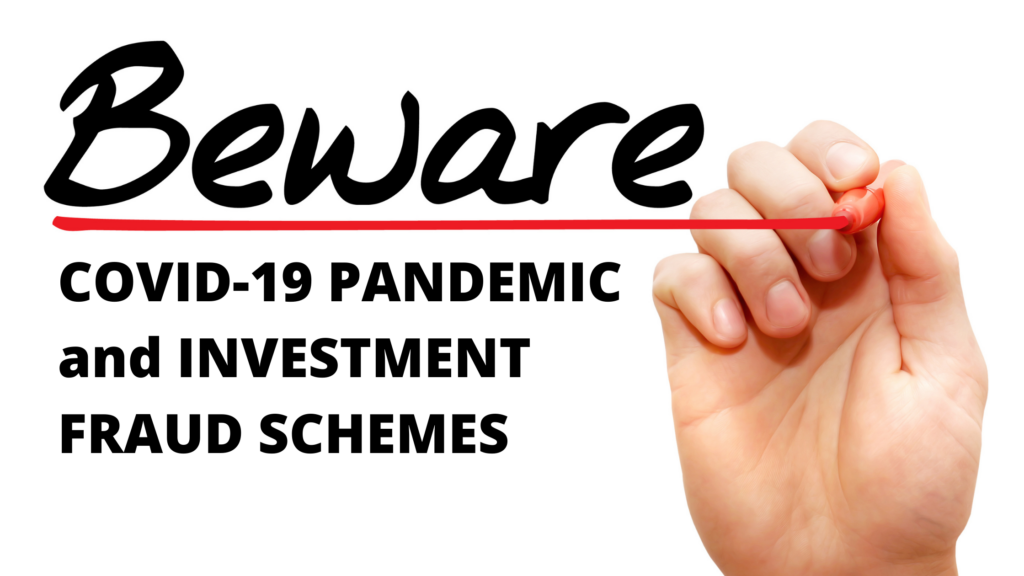Beware of Investment Fraud Schemes! The Securities and Exchange Commission has issued an alert to investors about fraudulent schemes being promoted during the COVID-19 pandemic. The SEC can issue trading suspensions and use other enforcement tools, as needed, but that doesn’t always make the investor, who was misled, entirely whole. The best way to avoid a loss is to look out for those schemes and not get involved.
According to the SEC, “Below are a few frauds Main Street investors should be especially wary of during this time.”
Fraudulent Stock Promotions and Market Manipulation
Claims that products or services can prevent, detect, or treat COVID-19, or help to solve issues resulting from the current pandemic, are often made by microcap or penny stock companies. If these claims are not supported by valid research or go against the mainstream news, you should be very skeptical.
Fraudulent Schemes for Unregistered Offerings
Under the federal securities laws, a company may not offer or sell securities unless the transaction has been registered with the SEC or have a valid exemption from registration. If you are being offered unregistered securities, you need to know if the company has received a valid exemption. If not, that is a red flag that you are dealing with a scam or an illegal transaction.
Charitable Investment Scams/Schemes
Although many organizations currently offer opportunities to help those most affected by the COVID-19 pandemic, there are those who will try to exploit your desire to help others by using charitable causes as a hook for investment schemes. Once they get your money, neither you nor the charitable entity may ever get the money. You can verify the validity of the request by calling the charity or research other validation tools.
Community-Based Financial Fraud Schemes
Community-based financial frauds, also called affinity frauds, target members of identifiable groups, including people with common ties based on ethnicity, nationality, religion, sexual orientation, military service, and age. These scams exploit the trust and friendship that exist within groups.
Bogus CDs Offering High Returns
During periods of market volatility, many investors may seek investments they feel are safer and less subject to risk and price fluctuation, such as financial products with fixed-rate returns. The SEC is aware of current fraudulent promotions of phony Certificates of Deposit (CDs) through internet advertising and “spoofed” websites – websites that mimic the actual sites of legitimate financial institutions. Spoofed websites may use URL addresses similar to those of legitimate firms’ websites, or use legitimate-sounding names and URLs.
The attorneys at Corporate Securities Legal LLP will help you verify the legitimacy of these offerings, and give you guidelines to protect your investments and charitable gifts.
Contact us today: /location/contact/

